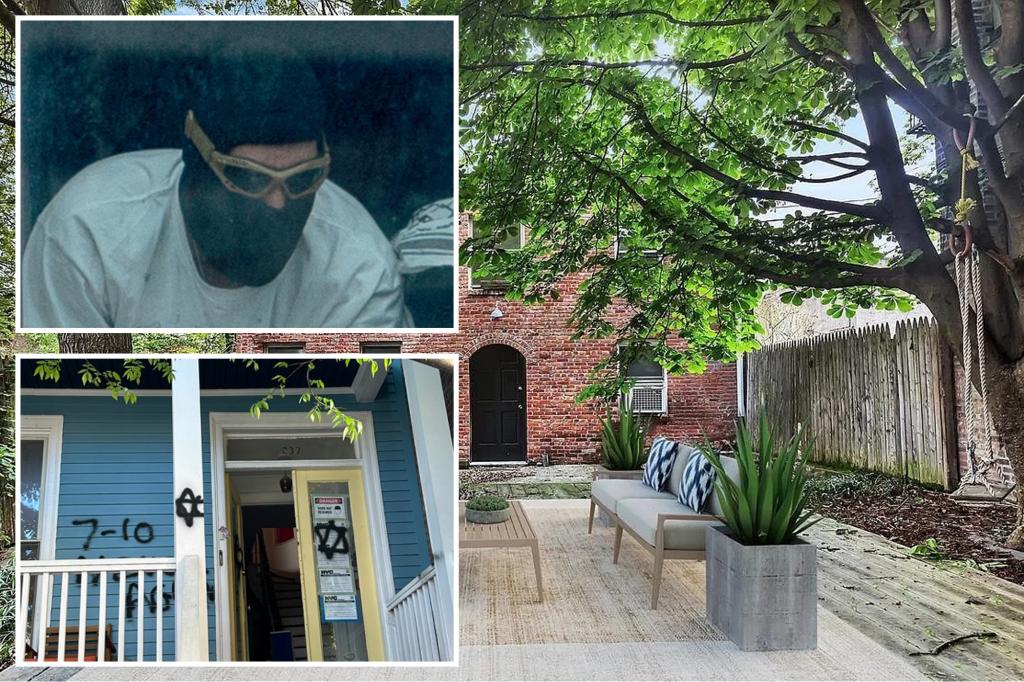The $3.4 million Brooklyn townhouse of wealthy Columbia University protester James Carlson was vandalized by vandals who spray-painted Stars of David and references to Hamas terrorists’ attacks on Israel on the front of the home. The vandalism appeared to be a vengeful act in response to Carlson’s participation in an anti-Israel protest at Columbia University’s Hamilton Hall on April 30. The graffiti was likely done on Monday night and was removed by workers renovating the residence on Tuesday morning.
James Carlson, the son of wealthy ad executives Richard “Dick” Tarlow and Sandy Carlson Tarlow, has a history of activism and outside agitation. He was caught on camera tussling with a university janitor as protesters stormed the building during the anti-Israel takeover of Hamilton Hall. Carlson was charged with burglary, reckless endangerment, criminal mischief, conspiracy, and criminal trespassing. The vandalism on his townhouse was seen as a clear act of revenge by neighbors and observers.
The graffiti on Carlson’s townhouse included black Stars of David, along with the phrases “7-10” and “Never Again,” which are references to Hamas terrorists’ attack on Israel on October 7. The vandalism was seen as a targeted and deliberate act against Carlson due to his involvement in the protest at Columbia University. The graffiti was likely meant to send a message to Carlson and express disapproval of his actions.
Workers renovating James Carlson’s townhouse removed the graffiti on Tuesday morning, shortly after it was discovered. The vandalism was addressed promptly, but it shed light on the tensions and controversies surrounding Carlson’s activism and the protests he has been involved in. The incident served as a reminder of the strong emotions and divided opinions that exist around issues such as the Israeli-Palestinian conflict and activism in academic spaces like Columbia University.
The vandalization of James Carlson’s townhouse raised questions about the limits of activism and protest, and the potential consequences that individuals may face for taking part in controversial demonstrations. The incident sparked discussions about the impact of activism on personal lives and the repercussions that can follow from engaging in contentious political actions. It also highlighted the challenges and risks associated with participating in movements that attract strong opposition and provoke intense reactions from others.
Overall, the vandalization of James Carlson’s Brooklyn townhouse was a targeted act of revenge that aimed to express disapproval of his involvement in anti-Israel protests. The incident highlighted the tensions and controversies surrounding activism and protest movements, as well as the personal risks that individuals may face for participating in such actions. The swift removal of the graffiti by workers renovating the townhouse underscored the need to address acts of vandalism and express dissent in more constructive and respectful ways.













